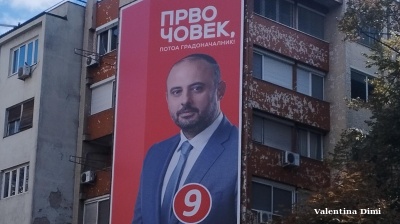Iran's parliament is preparing legislation to suspend cooperation with the International Atomic Energy Agency (IAEA) until the country receives "concrete guarantees" of professional behaviour from the UN nuclear watchdog, Parliament Speaker Mohammad Baqer Qalibaf announced on June 23, according to IRNA.
Speaking to parliamentarians, he said while Iran has no plans for non-peaceful nuclear activity based on a religious decree, the IAEA has demonstrably failed to uphold its responsibilities, thereby transforming into a political tool.
The proposed legislation comes following a US strike on Iran’s three nuclear sites in Fordow, Natanz and Isfahan, which did not face condemnation by the Agency as expected by Iran.
Tehran has condemned the US attack as a violation of international law and the Nuclear Non-Proliferation Treaty (NPT), with the incident unfolding amidst an ongoing Iran-Israel conflict since June 13.
Qalibaf criticised the IAEA, accusing it of not only failing to prevent the US aggression but also of allegedly providing confidential information on Iran's peaceful nuclear activities to the “enemy” and submitting unlawful reports that paved the way for the assault.
He referred to the director general’s latest report that led to a resolution passed by the IAEA's Board of Governors on June 12 declaring Iran in breach of its non-proliferation obligations for the first time in almost 20 years.
Based on the report, the 35-nation board found that Iran had failed to provide full cooperation regarding undeclared nuclear material and activities at multiple undeclared locations.
The IAEA resolution cited Iran's failure to provide credible explanations for uranium traces detected at undeclared sites, despite years of investigation. The May 31 IAEA report found that three of four locations "were part of an undeclared structured nuclear programme carried out by Iran until the early 2000s and that some activities used undeclared nuclear material."
Iran's nuclear programme has been under intensified scrutiny since President Donald Trump withdrew the United States from the 2015 nuclear deal during his first term, causing the agreement to unravel. As of May 17, Iran's stockpile of 60% enriched uranium stood at 408.6kg, representing a net increase of 133.8kg since the previous reporting period.
Iranian parliamentarians are also preparing a separate bill that could push Tehran toward exiting the NPT entirely, the foreign ministry confirmed on June 16.
IAEA Director General Rafael Grossi has called for "maximum restraint to avoid further escalation" and stressed that "any military action that jeopardises the safety and security of nuclear facilities risks grave consequences for the people of Iran, the region, and beyond."
Trump's strike potentially caused “very significant” damage to the underground areas of Fordow, UN nuclear watchdog chief Rafael Grossi said on June 23.
“Given the explosive payload utilised and the extreme(ly) vibration-sensitive nature of centrifuges, very significant damage is expected to have occurred,” Grossi said in a statement to an emergency meeting in the UN.
News

Pakistan protests India-Afghanistan joint statement
Pakistan contends that the joint statement's reference to Jammu and Kashmir contradicts United Nations Security Council resolutions and undermines the region's disputed status.

North Macedonia heads to local elections amid promises, unfinished projects and city challenges
North Macedonia is in the midst of a pre-election period characterised by a flurry of promises from politicians, ranging from infrastructure investments to tackling environmental issues, as the country prepares for its upcoming local elections.
.jpg)
Venezuelan opposition leader Maria Corina Machado awarded 2025 Nobel Peace Prize
The Norwegian Nobel Committee honoured Venezuelan democracy activist and opposition firebrand Maria Corina Machado with the 2025 Nobel Peace Prize, recognising her unwavering commitment to democratic rights and peaceful resistance.

Belarusian dissident Kolesnikova sends first letter from prison in more than two years
Maria Kolesnikova’s letter shared on Instagram as the Belarusian government seeks to re-establish limited diplomatic channels with Western countries.




